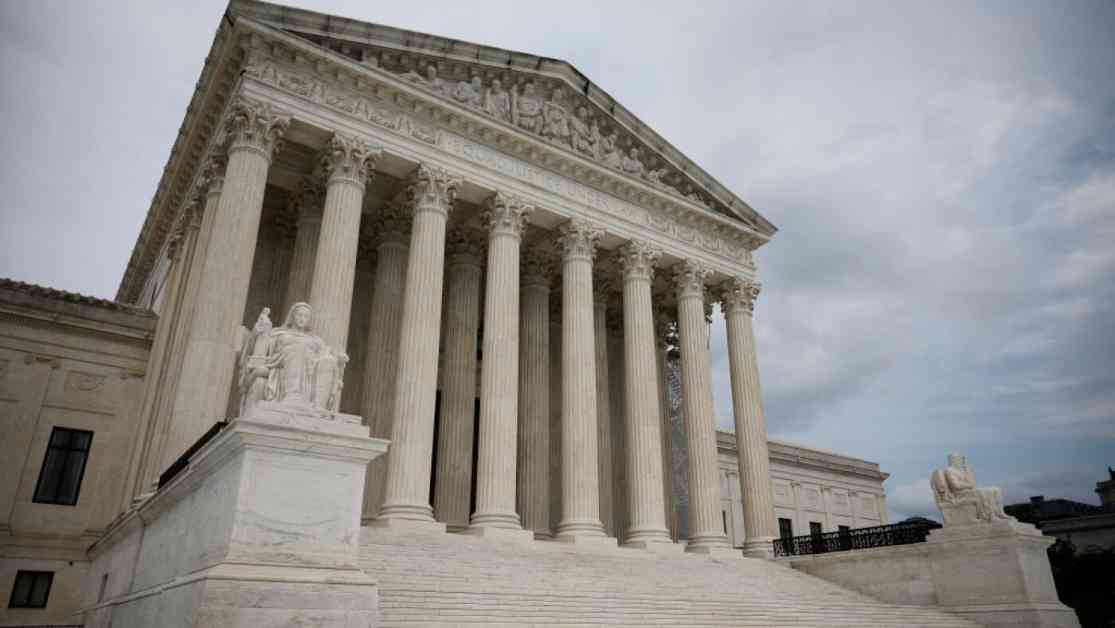The U.S. Supreme Court made a significant decision on Friday regarding the Biden administration’s new rules on sex discrimination in schools that receive federal aid. The Court agreed to partially limit two lower-court orders that had previously blocked the rules, effectively preventing the federal government from enforcing any portion of the new anti-discrimination rules while legal challenges are ongoing, particularly those involving protections for transgender students. This ruling has sparked debate and raised questions about the future of these regulations and the rights of students and employees in federally-funded educational institutions.
Legal Dispute Over Department of Education Rule Changes
The legal dispute at the center of this case revolves around the Department of Education’s rule changes aimed at strengthening protections against sex-based discrimination in schools and education programs that benefit from federal funding. While many of the provisions in the new rules are uncontroversial, the focus of contention lies on three specific provisions designed to safeguard transgender students. Two federal judges, one in Louisiana and the other in Kentucky, issued broad decisions blocking the entire rules package from being implemented in ten states, citing concerns over the transgender protections.
Supreme Court’s Action and Solicitor General’s Response
In response to the lower court orders, Solicitor General Elizabeth Prelogar urged the Supreme Court to unblock the uncontested provisions of the rules package while the legal challenges regarding transgender protections are being litigated in lower courts. Prelogar emphasized the importance of allowing many unchallenged provisions of the new Title IX rules to take effect immediately, highlighting the significance of issues such as handling sexual harassment allegations and protecting pregnant students and employees. However, the Supreme Court ultimately refused to intervene, leaving the full scope of the lower courts’ injunctions in place and rendering the new rules unenforceable in the ten states covered by the orders.
Implications of the Supreme Court’s Decision
The Supreme Court’s decision to uphold the lower court orders has far-reaching implications for the enforcement of anti-discrimination rules in schools across the country. With the new rules effectively stalled in ten states, questions arise about how schools will navigate issues of sex-based discrimination and ensure the protection of all students and employees. The dissenting Justices, including Gorsuch, Kagan, Sotomayor, and Jackson, expressed their disagreement with the Court’s decision, advocating for the uncontested provisions to be implemented immediately to address critical issues within educational institutions.
Supporters of the Supreme Court’s order, including the states that filed the challenges, argued that even partial implementation of the rules package would place undue burdens on schools and potentially infringe on states’ rights. The ten states affected by the lower court orders, which include Louisiana, Kentucky, Tennessee, Ohio, Indiana, Virginia, West Virginia, Mississippi, Montana, and Idaho, contend that the regulations should not be enforced until all legal challenges, particularly those related to transgender protections, are resolved.
Continued Challenges and Pending Resolutions
While the legal battle over the transgender provisions continues in states such as Texas, Kansas, Alabama, Oklahoma, and Missouri, the future of the Biden administration’s rules on sex discrimination remains uncertain. The unresolved issues surrounding transgender protections underscore the complexities of balancing the rights of all students and employees in educational settings. As the legal landscape evolves, it is essential to consider the broader implications of these regulations on the education system and society as a whole.
In conclusion, the Supreme Court’s decision to block the Biden administration’s rules on sex discrimination in schools reflects the ongoing debates and challenges surrounding the protection of students’ rights in federally-funded educational institutions. The legal battles over transgender provisions highlight the need for thoughtful consideration and resolution to ensure equality and fairness for all individuals within the education system. The implications of this ruling will continue to reverberate as the legal process unfolds, shaping the future of anti-discrimination policies in schools nationwide.



























